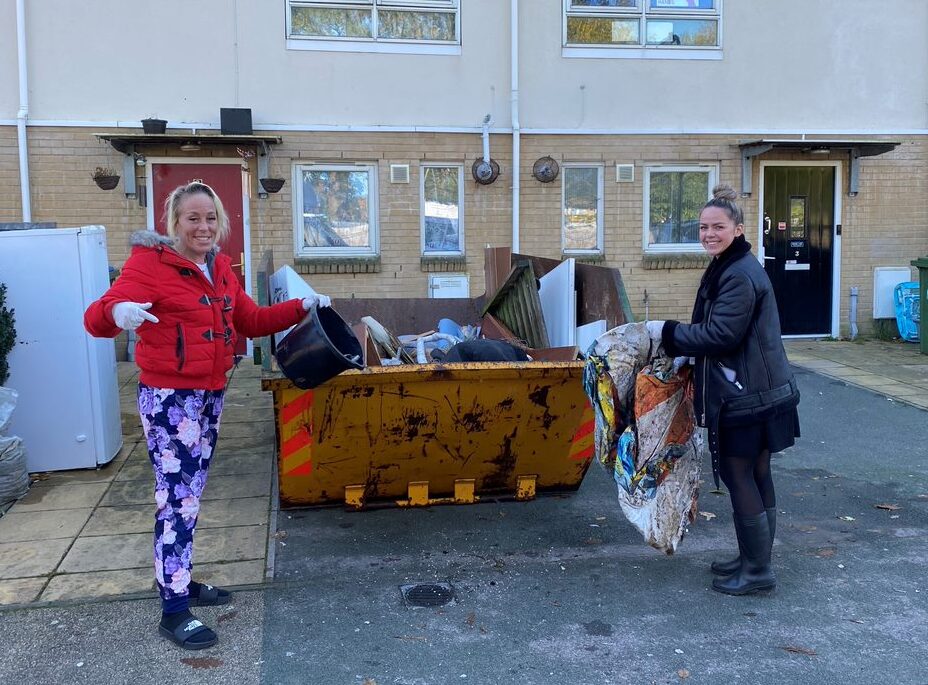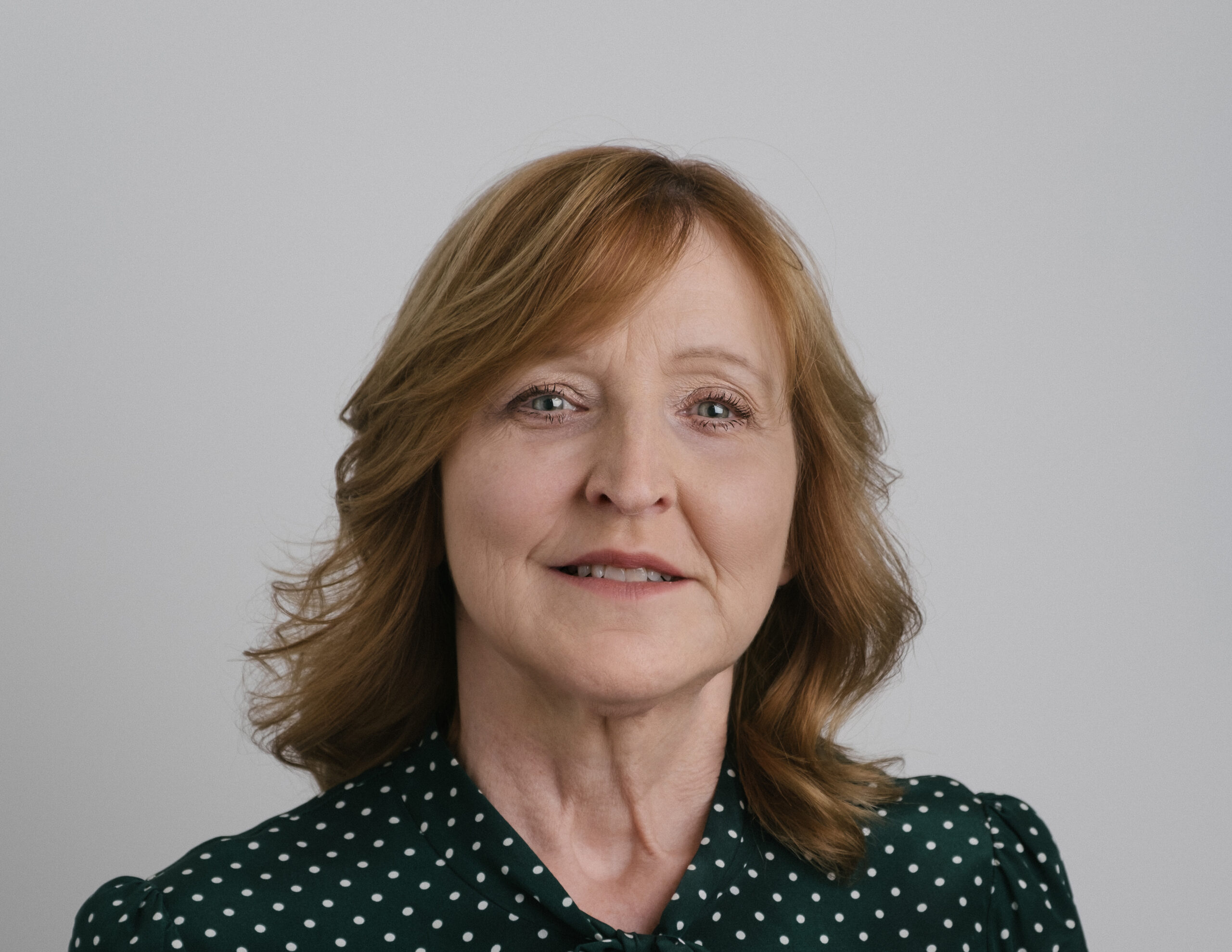Richard Blakeway, the Housing Ombudsman, is a busy man. But HQN managed to pin him down for an hour, on Zoom, naturally. Max Salsbury reports.
A man on a mission, Richard Blakeway seems to be everywhere at the moment. Is there perhaps more than one of him, cloned for the vast task of getting the sector in order?
This is, by my reckoning, the seventh time I’ve encountered Richard on Zoom. Appointed a few months before the outbreak of the Covid pandemic, I’m yet to meet him in the real world. Could the online Richard be a holographic entity? But enough of these strange speculations, we get down to discuss the large, and expanding, remit of the ombudsman, its relationship with the regulator, mergers, the tricky issue of leasehold, and lots, lots more…
Complaints are the ombudsman’s main raison d’etre – and the service is currently receiving record levels of them. Why does Richard think that is?
“That’s a big question. I think it’s very hard to look at our decisions and say things are better or worse because there wasn’t the level of transparency before. What are you comparing against? What’s your benchmark? And I think there’s a sort of quantitative element to our work. But there’s also a very strong qualitative assessment with our casework, and you can identify quite strong themes from there. But again, it’s harder to be comparative.
“I think we’re seeing more people because there’s a greater awareness and improved access; they have more confidence in making complaints and they see the value in making complaints”
“I think in isolation, it’s hard to make a judgement, but what you need to do is triangulate it. There are common and consistent reasons driving service failure, sometimes within particular complaint categories, sometimes wider. And organisationally, we’re starting to move the debate on from effective complaint handling, which is obviously very important, into looking at what’s given rise to the complaint, what’s the cause of the complaint and substantive issues.
“Some of those things were known. Whether they were prioritised enough or not, they were known. I think they’re particularly around disabilities, mental health and vulnerabilities.”
But could it also be linked with the ombudsman more proactively reaching out to tenants to make their voices heard, urging them to make complaints if they have them, letting them know the service is here to help, whereas previously the service was perhaps a little bit hidden?
“Yeah, potentially. Clearly, we’ve seen an increase in casework, but I also think we’ve seen a change in the type of casework – it’s becoming more complex.
“We’re seeing people who may be vulnerable, who may have struggled to just make it through the process, reaching out through the internal complaints procedure, reaching us. I think we’re seeing more people because there’s a greater awareness and improved access; they have more confidence in making complaints and they see the value in making complaints.
“And, actually, some of that’s really positive – that people can see the difference it will make and that we’re overcoming some of the concerns that were very well articulated by residents during the production of the green paper following the Grenfell Tower fire, where people were saying, ‘I’ll be seen as a troublemaker, and it’ll have some negative impact on my relationship with the landlord’. So, overcoming that is a positive thing. Furthermore, through the Complaint Handling Code we’re seeing more rigour, discipline and consistency around the complaints procedure.
“I recall one landlord saying to me that their adoption of that complaint definition in the code led to a 150% increase in formal complaints. That was stuff that was just below the radar. It’s not just the volume, but the type of complaint coming to us.”
I ask Richard to expand on this: would he say that many of the issues the service is seeing now are nothing new?

“Yes, I think that’s right, roughly. Broadly speaking, you’re seeing two out of three complaints involve property condition in some form. So, whilst that’s always been the lion’s share of what we did, it was usually less than half of what we did, so that’s a change. And we consider that over half of our complaints are complex – and by complex that typically means involving more than one issue as part of the complaint definition.
“A really good indicator of the kind of complexity of stuff coming to us is the trend in terms of remedies. And by remedies, I don’t just mean compensation. I mean in the orders and recommendations in the round when I started. I don’t think we reported our remedies publicly when we started, but I think it was probably around 2,000 a year. Two years ago, it was about 4,500. Last year it was 6,500. By current trends it’ll be more than 10,000 this year.
“And with the caseload, particularly between this year and last year, you will see a noticeable increase in determinations. Prior to that there was an increase in determinations, but the increase in remedies were proportionally much greater. I think that’s an indicator in terms of the nature of the cases as well as, of course, our development. And we’re seeing cases sometimes that have been around a decade – where we could clearly evidence someone had been complaining about or raising something, and then the rigour of the code and the formal complaints procedure meant they suddenly got out the other end and landed with us. But this was a decade’s worth, and quite consistently we’re seeing those cases come through.”
Good relations
How are his relationships with landlords? Are the majority on board with the current approach? Is there much resistance, and are lessons being learned?
“Well, it’s easy to be very subjective about this. And that’s three questions in one! To try and take each in turn, on the resistance bit, the data around reviews and reviews requests suggest that review requests have gone down slightly.
“So, on that kind of measurement, you say there’s less resistance to the decisions, albeit I always think I encourage landlords to review a decision. It’s done by a separate team, it’s robust. I probably shouldn’t say this, actually, but they are very independently minded, the reviews team, which is really brilliant. But it would appear that landlords are requesting less reviews, and I think that probably reflects the quality and robustness of our decisions, but also the spirit in which they’re being considered by landlords and residents. Reviews can obviously be requested by residents as well.
“On learning, I think it’s a word that’s easily said and really hard to do. We’re trying to provide more information and tools to support learning. We’re trying to encourage the role of the member responsible for complaints as part of the Complaint Handling Code to give some senior kind of leadership or board level leadership around learning – thinking about how the Centre for Learning develops and how that can provide structural learning.
“I think there’s probably been a lot more focus on learning around complaint handling and perhaps less around the substantive issues that are giving rise to complaints”
“There’s a lot of work to do, and I think there’s probably been a lot more focus on learning around complaint handling and perhaps less around the substantive issues that are giving rise to complaints.”
“Learning is an area where we’ll do even more. The direction of travel for the ombudsman will be to do even more in that space, including extracting learning from decisions which we didn’t uphold. And I think there can be learning from all of our decisions, all types of decisions.
“As for our relationships with landlords: firstly, and most notably, there’s a dialogue that never really existed to a great extent before. I don’t think there were relationships at a senior level between landlords and the HOS. I just don’t think there were the conversations happening between chairs or chief executives and the HOS. That’s a really positive thing – that there’s a dialogue now, and I do a lot of talking to boards and I’m really impressed at how many senior leaders really kind of come in and talk to our organisation and talk to our staff and are really open and candid.”
Ancient history
Richard inherited a vast backlog of issues when he came to the helm, with fresh complaints coming through constantly. It’s clearly tricky to clear it all but we’re aware of individuals getting letters from Michael Gove who weren’t in charge when the original sin was committed. Can things be speeded up?
“Yeah, absolutely. There’s been a lot of volatility around casework volumes, but there’s been a 69% increase in determinations in the last quarter compared to the same quarter last year.
“That’s clearly the trajectory we’re on, which is good, and helpful because our Dispute Support Service, which is the real time internal complaints procedure work, which is handling tens of thousands of cases each year, and the Complaint Handling Failure Order Report which comes out of that is real-time intelligence for landlords that they really need to focus on. With the determinations, sometimes it’s the kind of underlying reasons which are worth looking at. I think we’re issuing a determination roughly every 30 minutes now.”
One of the highly contentious matters of the day is the issue of leasehold – a problem Michael Gove has been trying to untangle. What does Richard think is the answer?
“Always sounds so terribly close to hubris to say you’re proud of anything, doesn’t it, but I’m genuinely really proud of the people, because when I started there was about 50 in the organisation and a lot of them have been so instrumental in that change programme that we’ve been going through”
“It’s interesting because this is an area where we’re thinking of doing some work, including what our role is as an ombudsman, compared, say, to the tribunal’s.
“I do think there’s an issue for leaseholders in that there can be a lack of clarity because of the complexity of the system, because often the different parties involved (managing agents, freeholders…who is the freeholder if it’s not a member of our scheme?) combined with probably just not a proper examination of the roles and responsibilities under the Tenant Landlord Act…I think people can end up as a leaseholder and find that their issues aren’t being addressed properly and adequately.
“I think whether or not it’s the right system, the right system design and all the stuff about commonhold within the system we have, we’re not doing the things and we’re not seeing the things done that should be done.”
The ombudsman has been releasing its Spotlight reports about areas of concern – are anymore investigations lined up for the coming months?
“Yeah. So, our next Spotlight report will be on communications and relationships and will touch on issues around vulnerabilities and disability. (I don’t like the word ‘vulnerable’. I need to come up with a better, alternative word.)”

On these annual reports on landlords, is there going to be a report on each landlord or is it going to be a compilation?
“Yeah, so this is probably the third time we’ve done it, but it evolves significantly each time. This is for landlords where we’ve had more than five findings in a year, we publish a report which contains the outcomes aswell. It’s got lots in the report, including the findings, level of compensation, compliance levels, complaint categories and so on. It’s a kind of MOT, in terms of the complaints handled and investigated by us over that 12-month period.
“What these reports will have, which the previous ones didn’t, is more comparators both for sector and similar landlords, but also for the previous year, because we went through an exercise about two years ago of changing some of the ways we record things on our system. We’re now able to do an apples with apples comparison in the annual reports. We’ll publish those, I’m hoping in October. That’s the plan.”
The ombudsman is expanding – and so is the regulator. I ask Richard about his relationship with the RSH: do they work in collaboration with each other and share notes, or do they try and plough their own furrow as much as possible? And can he see a situation where the two could merge?
“Contentious question! We have really good relationships with the regulator, and I think we found a form of words together which hopefully explains our roles in a way which is understood. I certainly hope so. And this is very much how I would describe the relationship: the regulator by design is kind of top down – it’s looking at systems and it’s looking at governance – whereas we’re kind of bottom up. And what I seek to do, certainly through our systemic work, is join the dots between thousands of individual cases to identify what the themes are on an individual provider basis or on a sectoral basis. And that kind of touches in the middle, and I call them ‘touch points’ rather than ‘handover points’.
“With the determinations, sometimes it’s the kind of underlying reasons which are worth looking at. I think we’re issuing a determination roughly every 30 minutes now”
“I think the evolution of what we’ve seen on damp and mould is a demonstration of that. We produce our Spotlight report; some landlords respond to it and assess themselves against the recommendations. A year later, in light of the Awaab Ishak inquest, the regulator seeks assurance from providers on what they’re doing on damp and mould.
“The regulator is quite open about saying those providers who are able to offer the best assurance were able to point to the actions they’d taken since the Spotlight report was published. I think that’s a good example of how complaints can be elevated and how the learning from complaints can be structured in a way which then supports the kind of wider regulatory environment.
“But we should note, both organisations are independent, obviously, and we have very separate roles, so both could exist without the other. I don’t think you would want to combine them. Nor can I think of an example where that’s the case.
“You need that independence of decision-making by an ombudsman. Otherwise it doesn’t have the integrity, it doesn’t have the impartiality. Also, our jurisdictions are slightly different, particularly around, say, things like leaseholders. And I see our service evolving more in terms of providing redress in housing, across housing tenures, because I’m very keen to see what we can do through our voluntary membership as well.”
Further mergers?
The ombudsman has been critical of some merged organisations. Does he think that the service’s findings on these large organisations should have any bearing on whether the RSH waves the mergers through, sets them criteria or rejects them?
“Well, that’s probably more of a question for the regulator. But I’ll give you an answer. The first thing is, I think it’s a very compelling evidence base that we have around merger or any significant organisational change. It might be an almo coming back inhouse at a council, for example. But stock transfer, merger, almos being folded…there’s now consistent, clear and compelling evidence that that can lead to a deterioration in complaint handling and to an increase in service failure and problems in service delivery for residents. We’re consistently seeing that.
“And whether it’s in individual cases or the special reports that we’ve done on providers, the merger or the stock transfer in some form is in there. This is just a thought that perhaps merger has been driven, if you like, by growth and ambition and noble ambitions around wanting to build more homes and address the housing crisis – and in the past there’s also been merger through financial necessity. Therefore, it’s how do you – with that known risk and given the evidence that we’ve established over several years in different places – address it, spark the process rather than it somehow being conceived as a veto?
“And I don’t think it should be conceived as a sort of veto. I don’t think that’s our role. I don’t think that would be appropriate. People should look hard at how we ensure there isn’t a deterioration, because it can be so hard to recover the position. And, again, one of the issues here isn’t just systems, teams, cultures – it’s about records and data. And I’ve seen cases where the property has changed hands twice and then someone’s said, ‘Oh, well, no one’s got a record of this, and we didn’t know’. I mean, it pops up quite a lot in things like preserved right to buy, for example – people being offered the right to buy and at the last moment someone spots they’re not entitled to it.”
The sector is facing a range of organisational issues: financial, cultural, the professionalisation agenda and high staff turnover. How much of an impediment does Richard think those factors are to delivering a good service? And what would his suggestions be for sorting that out? What would he be saying to government, for example, about these issues?
“Well, the government has made a statement around professionalism and wanting to see more of it. How does that come to life? I think talent is clearly a significant issue and can be a real challenge in terms of effective service delivery, and obviously it depends on the role and type of organisation, location, etc – there are lots of caveats around it.
“No surprises saying that, I suppose. One of the things I’ve tried to stress through some of our casework is the need to invest and develop colleagues. And I’ve talked about how sometimes that might be investing in the systems that make their job easier or it might be the training and all the rest of it. But it’s essential if you look at complaint handling. For example, there’s a lot of resilience sometimes needed in complaint handling, so sometimes there can be quite a lot of turnover. And sometimes you need to avoid fatigue or case blindness: ‘Oh, it’s another thing. It sounds like the last one.’
“There’s a risk of that, for all the good intentions. There’s something about how you keep people in that role energised. You can see how those teams have been under-resourced, though, in terms of people. We published a recent decision, where in its learning statement the landlord was quite open about how it had reduced the size of the team and had now increased the size of the team as part of its learning. I think there’s something there about what is the appropriate level of resource – as well as can I actually get that resource?
“And then how do I ensure that there’s a degree of stability whilst also avoiding staleness, poor behaviours or practises developing and increasing the housing crisis? Our work, I’ve said, is a reflection of the elements of the housing crisis. You see that particularly in the context of local authorities and the wider statutory housing powers they have. I really strongly feel that we must be at a kind of touch crossroads now where this just needs to be gripped.”
Teaming up
In the recent Nottingham report on ASB, the ombudsman combined with the Local Government and Social Care Ombudsman. Maybe the Housing Ombudsman might have to do things in conjunction in relation to housing associations, where there’s a split of responsibility and always the possibility of homelessness and allocations?
“So, working closely with the Local Government Social Care Ombudsman is absolutely part of our plan. One of the things which we’ve done is the Complaint Handling Code. Our intention is that it becomes a joint code and that it applies across their jurisdiction as well as ours.”
Evolving roles

Richard’s been in the role for four years: does he feel the service is still evolving, and what’s he most proud off?
“Yes, it’s still evolving. We’re continuing to recruit. I’ve done some of the interviews for a whole range of different roles, not necessarily senior roles.
“And I remember being asked by one candidate, about where we were on our journey. And I described it as: we’ve got our coat on, but we haven’t opened the front door or something, was my phrase. So, I think, yeah, we’re absolutely still evolving and developing the way that the service operates.
“What am I most proud of? Always sounds so terribly close to hubris to say you’re proud of anything, doesn’t it, but I’m genuinely really proud of the people, because when I started there was about 50 in the organisation and a lot of them have been so instrumental in that change programme that we’ve been going through. And that’s been a change of pace: their resilience, their energy, their creativity. And I hope I’ve been able to unlock some talent in there.”
Based on his work, can he pick out a couple of characteristics that would identify a landlord that was heading in the right direction?
“Well, that’s a really interesting question and I need longer to think about it! I’m not going to do justice to it in my answer. Well, doesn’t it start with what is social housing and what does the word ‘social’ mean? And ‘social’ isn’t just about cost, it’s also about community. It’s about people, about humans. In my personal view, embracing the word ‘social’ holistically, rather than focusing purely on the rent bit, is really essential.
“There’s now consistent, clear and compelling evidence that that [mergers] can lead to a deterioration in complaint handling and to an increase in service failure and problems in service delivery for residents”
“For many social landlords, they’ll be working in communities, perhaps areas where they are for many residents the kind of last touchpoint that they’ve got with institutions, with services. I don’t think that’s something that landlords should shy away from and feel they’ve been left exposed or that they’re picking up slack from others. I get the pressure that it brings on them.
“But I’d encourage them to embrace that role because it’s a reality. And that, actually, for many communities, they are one of the few services that people can get in touch with in the way in which many people who have joined us, who have worked in other ombudsman areas or service areas, they’ve said there’s something really very distinct about the casework that they do on housing compared to what they did elsewhere.
“And that’s, again, a reflection of that kind of role. And they’re engaging with customers, which is more than just about the home, it’s more than about bricks and mortar, more than that transactional stuff. So, something beyond transactional…sorry, danger of getting waffly now…the values that drive the sector, the sense of tackling social injustice, the leadership that that requires, and then the openness and the transparency about how they engage, how they work, I think those are all essential to making that model of success.
“And that’s the kind of leadership I’d really strongly encourage in the sector. I’ve seen it displayed really effectively and it’s inspirational. I’ve also seen the opposite, of course, but I think that there’s something about the culture of it, of what is a social landlord and that leadership that unlocks that culture. And then there’s something about that word ‘social’ and what it means to them.”
Housing passion
Richard is clearly devoted to his role – where does his passion for social housing come from?
“Well, my father was a local authority cabinet member and a city council cabinet member, responsible for housing a long time ago, but in the post-war era. And, so, I remember talking to him about that distinctly. And then, yeah, I think obviously it’s a few years now that I’ve been working in housing in different roles and in different areas. But I suppose if you were to try and find that start point, there’s something there.”
And does he see social housing as a force for good?
“Oh, absolutely. Unquestionably. Yeah. I probably have quite a Bevanite view of kind of the role that social housing should perform in society and the economy.”
Richard has a very succinct answer for my final question – does he have any political ambitions outside of housing and would he ever consider running for parliament?
“No.”
Housing Ombudsman annual complaints review 2022-23 – key findings
- During the 12 months, the Housing Ombudsman Service received over 5,000 complaints – a 27% increase on the previous year
- The number of severe maladministration findings rose sharply from 31 to 131 – a 323% increase. 112 of these 131 findings were for landlords with over 10,000 homes
- The maladministration rate for local authorities was slightly higher than housing associations, 62% compared to 50%. The ombudsman says this is due to local authorities having fewer resources, making it harder to offer reasonable redress
- The main complaint type was property condition, accounting for 37% of all the ombudsman findings made during the 12 months
- Complaints handling was the second largest category of complaint with a 76% maladministration rate
- The ombudsman reported a 52% maladministration rate for health and safety complaints, which includes building safety
- 146 Complaint Handling Failure Orders (CHFOs) were issued in 2022-23, of which 73% were for landlords with 10,000 or more homes
- 91 landlords had a maladministration rate of over 50%, with 25 of these having a maladministration rate of over 75%
- The ombudsman ordered more than £1.1 million be paid in compensation by landlords during the 12 months.





















